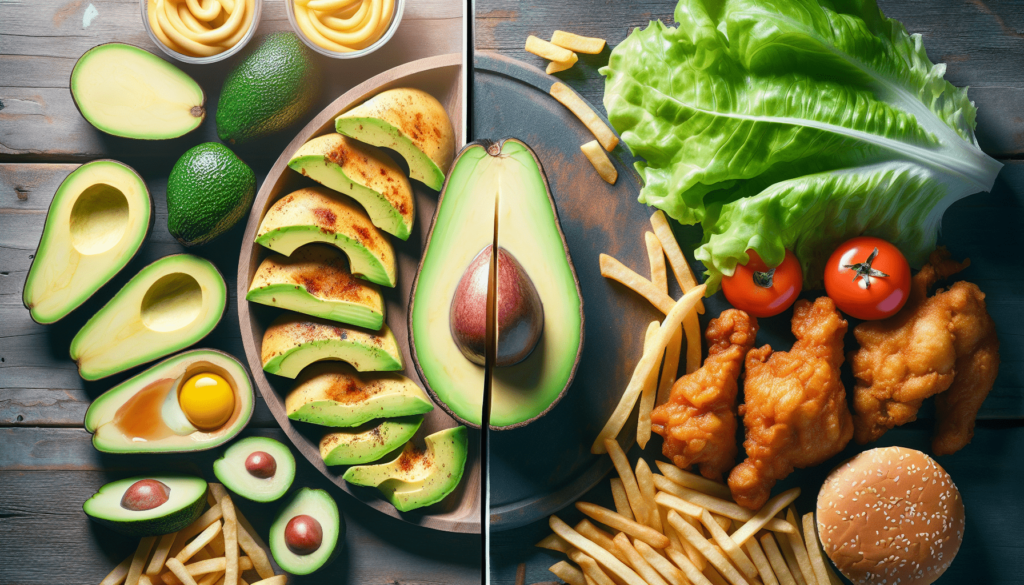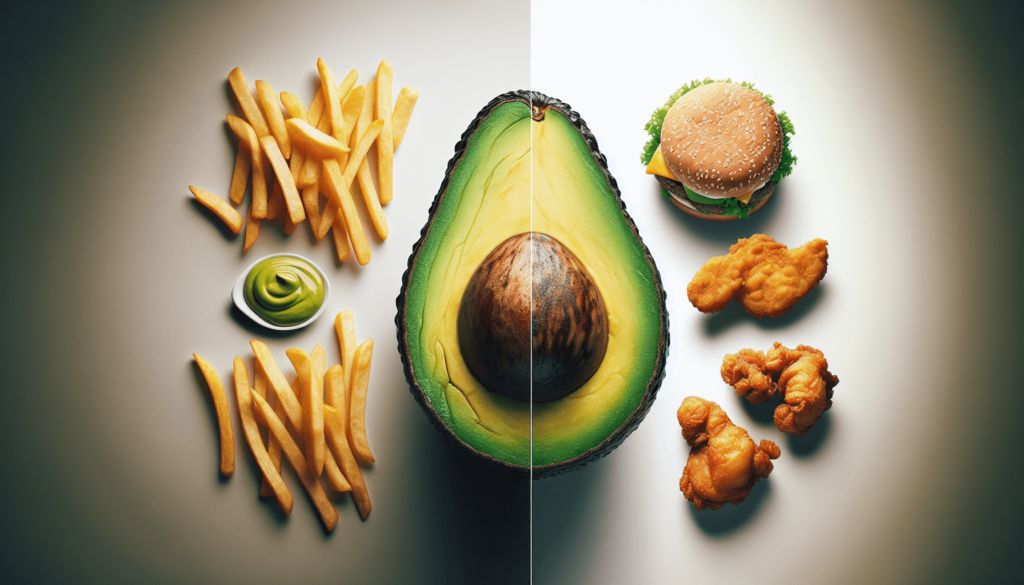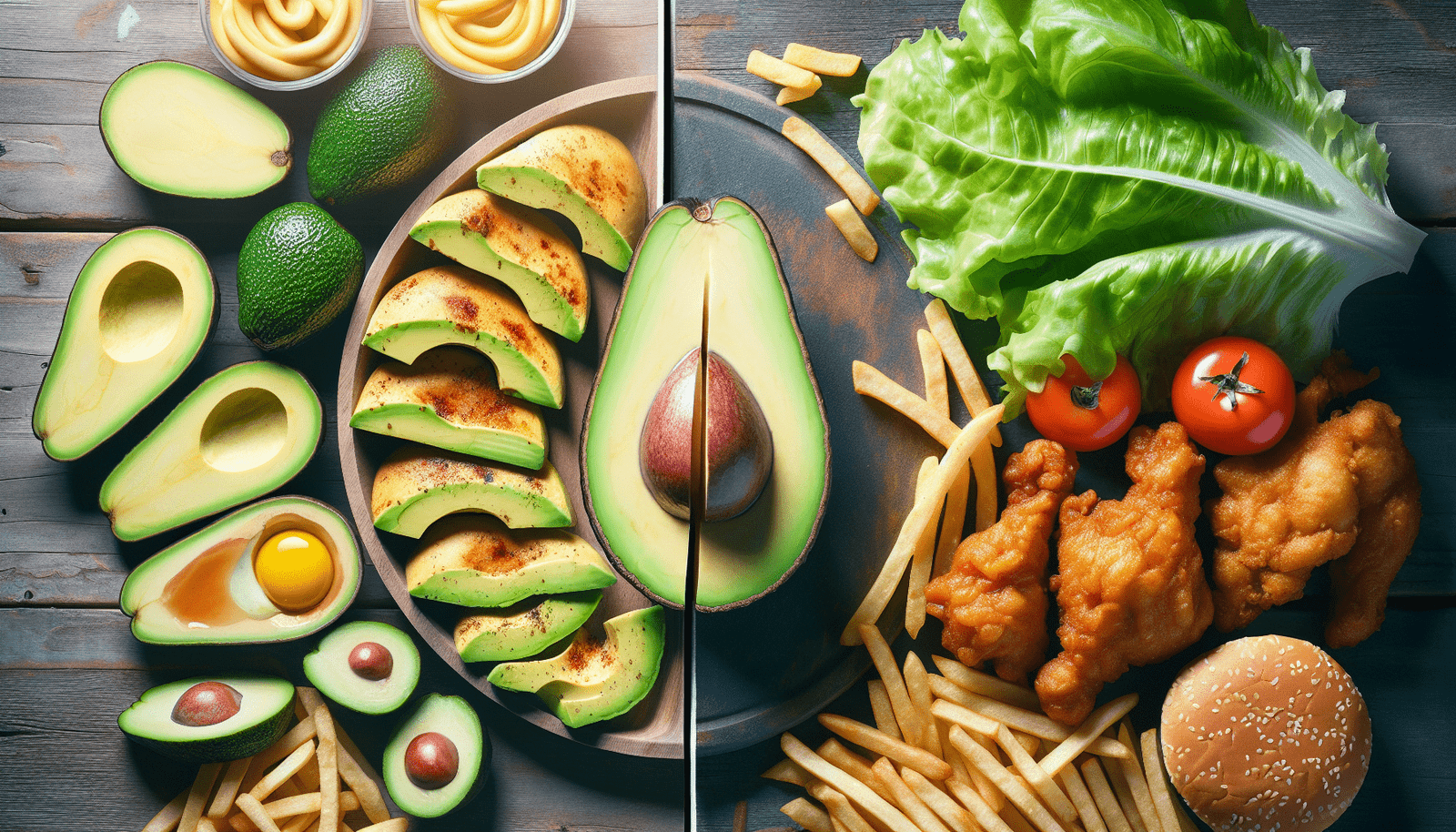Are you unsure about which types of fats are healthy for your body and which ones should be limited in your diet? Let’s break it down for you!
Understanding Fats
When it comes to nutrition, fats often get a bad reputation. However, not all fats are created equal. In fact, fats are an essential macronutrient that plays a crucial role in maintaining optimal health.
Fats are made up of fatty acids, which can be either saturated or unsaturated. While some fats can benefit your health, others can have a negative impact if consumed in excess. Understanding the difference between healthy fats and unhealthy fats is key to making informed decisions about your diet.
Healthy Fats
Healthy fats, also known as unsaturated fats, are beneficial for your body in many ways. They can help you absorb certain vitamins and nutrients, maintain healthy hair and skin, and provide long-lasting energy.
Some sources of healthy fats include:
- Avocados
- Nuts and seeds
- Olive oil
- Fatty fish like salmon and mackerel
Incorporating these fats into your diet can have a positive impact on your overall health and well-being.
Unhealthy Fats
On the other hand, unhealthy fats, also known as saturated fats and trans fats, can negatively affect your health when consumed in excessive amounts. They can contribute to various health issues, such as heart disease, obesity, and high cholesterol levels.
Sources of unhealthy fats include:
- Fried foods
- Processed snacks
- Margarine
- Fatty cuts of meat
Limiting your intake of unhealthy fats is important for maintaining good health and preventing chronic diseases.
Different Types of Fats
To further understand the differences between healthy and unhealthy fats, it’s essential to know the various types of fats and how they can impact your health.
Saturated Fats
Saturated fats are typically solid at room temperature and are found in animal products like meat and dairy. They can raise your LDL cholesterol levels, also known as the “bad” cholesterol, increasing your risk of heart disease and other health complications.
Choosing lean cuts of meat, low-fat dairy products, and plant-based sources of protein can help you reduce your intake of saturated fats and improve your overall health.
Trans Fats
Trans fats are artificial fats that are created through a process called hydrogenation. They are commonly found in processed foods like cookies, cakes, and fried foods. Trans fats can increase your risk of heart disease, stroke, and diabetes, making them important to avoid in your diet.
Reading nutrition labels and choosing products that are free of trans fats can help you make healthier food choices and protect your heart health.
Monounsaturated Fats
Monounsaturated fats are liquid at room temperature and can be found in foods like olive oil, avocados, and nuts. They can help lower your LDL cholesterol levels, reduce inflammation, and improve your insulin sensitivity.
Incorporating foods rich in monounsaturated fats into your meals can be beneficial for your heart health and overall well-being.
Polyunsaturated Fats
Polyunsaturated fats, which include omega-3 and omega-6 fatty acids, are essential fats that your body needs but can’t produce on its own. They play a crucial role in brain function, cell growth, and inflammation regulation.
Sources of polyunsaturated fats include fatty fish, flaxseeds, and walnuts. Adding these foods to your diet can provide you with the necessary nutrients to support your overall health and vitality.

Making Healthy Choices
Now that you have a better understanding of the different types of fats and their effects on your health, it’s important to make informed choices about the fats you consume.
Cooking Oils
Choosing the right cooking oils can make a significant difference in the quality of fats you consume. Opt for oils like olive oil, avocado oil, and coconut oil, which are rich in healthy fats and can withstand high temperatures without oxidizing.
Using these oils in your cooking and meal preparation can help you maximize the nutritional benefits of fats and support your overall health.
Snack Choices
When it comes to snacking, it’s easy to reach for options that are high in unhealthy fats, like chips and cookies. Instead, choose nutrient-dense snacks like raw nuts, seeds, and fresh fruits, which are rich in healthy fats and other essential nutrients.
Snacking on these wholesome foods can satisfy your cravings while nourishing your body and providing you with sustainable energy throughout the day.
Meal Planning
Planning your meals in advance can help you make better choices about the fats you consume and ensure you’re getting a balanced diet. Include a variety of foods rich in healthy fats, lean proteins, whole grains, and fiber to support your health and well-being.
Experimenting with different recipes and incorporating a diverse range of ingredients can make your meals more enjoyable and nutritious.
Final Thoughts
By understanding the difference between healthy fats and unhealthy fats, you can make informed decisions about your diet and improve your overall health. Incorporating foods rich in healthy fats, like avocados, nuts, and fatty fish, can provide you with essential nutrients and support your well-being.
Remember to limit your intake of unhealthy fats, such as fried foods, processed snacks, and fatty cuts of meat, to protect your heart health and reduce your risk of chronic diseases. Making small changes to your diet, like choosing the right cooking oils, selecting nutrient-dense snacks, and planning your meals, can help you achieve a healthier lifestyle and enhance your vitality.
So, the next time you’re considering your food choices, remember that fats can be a valuable part of your diet when consumed in moderation and from healthy sources. Your body will thank you for making nutritious and wholesome choices that promote optimal health and well-being.


